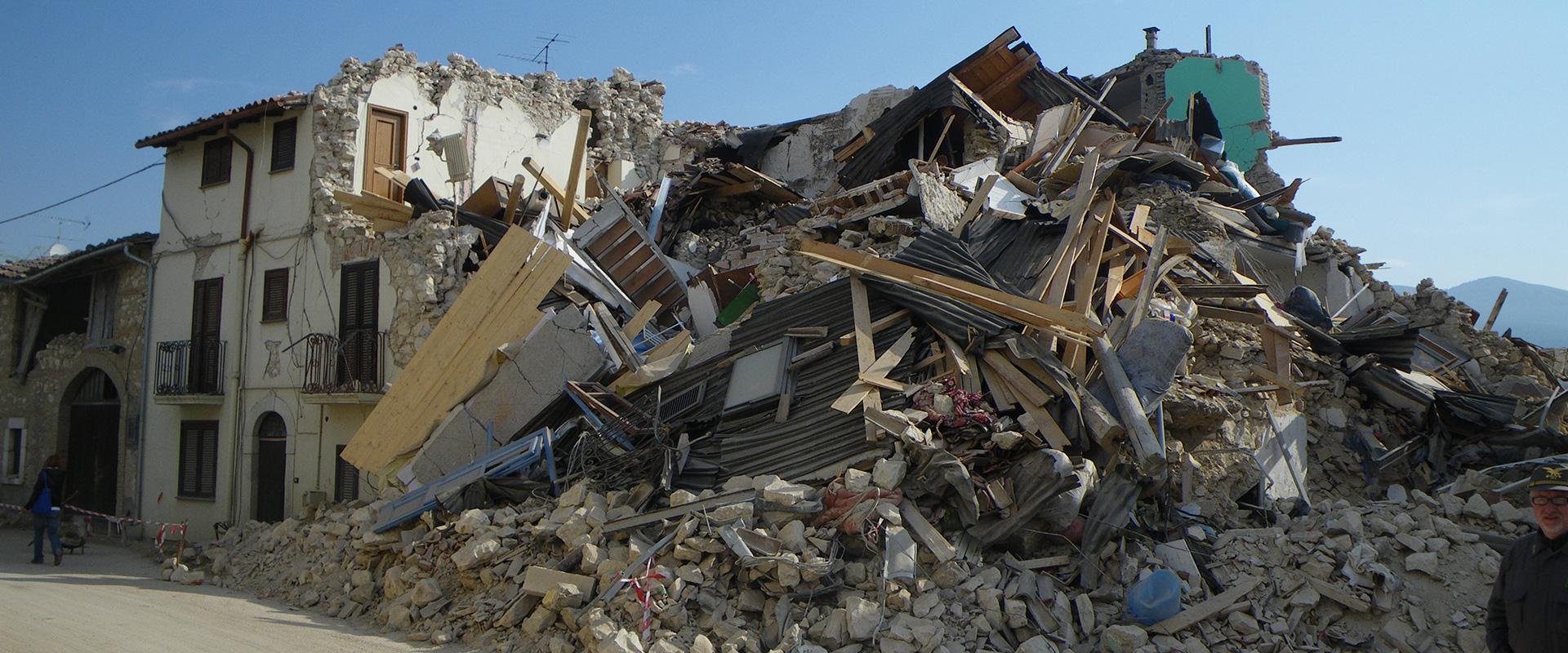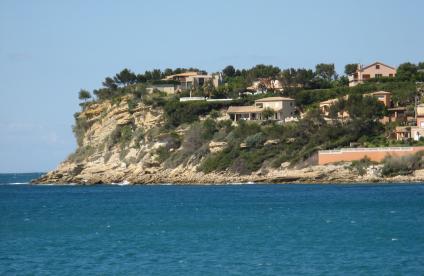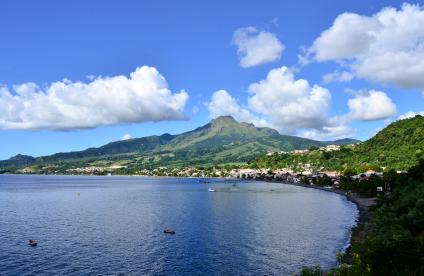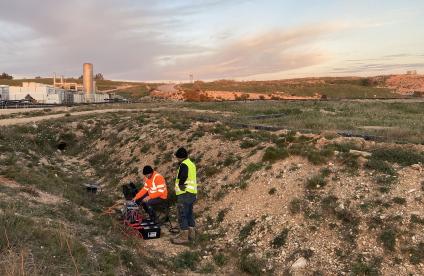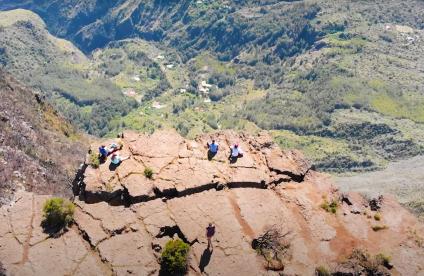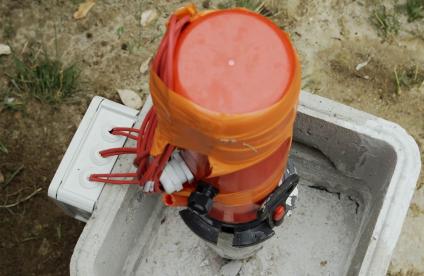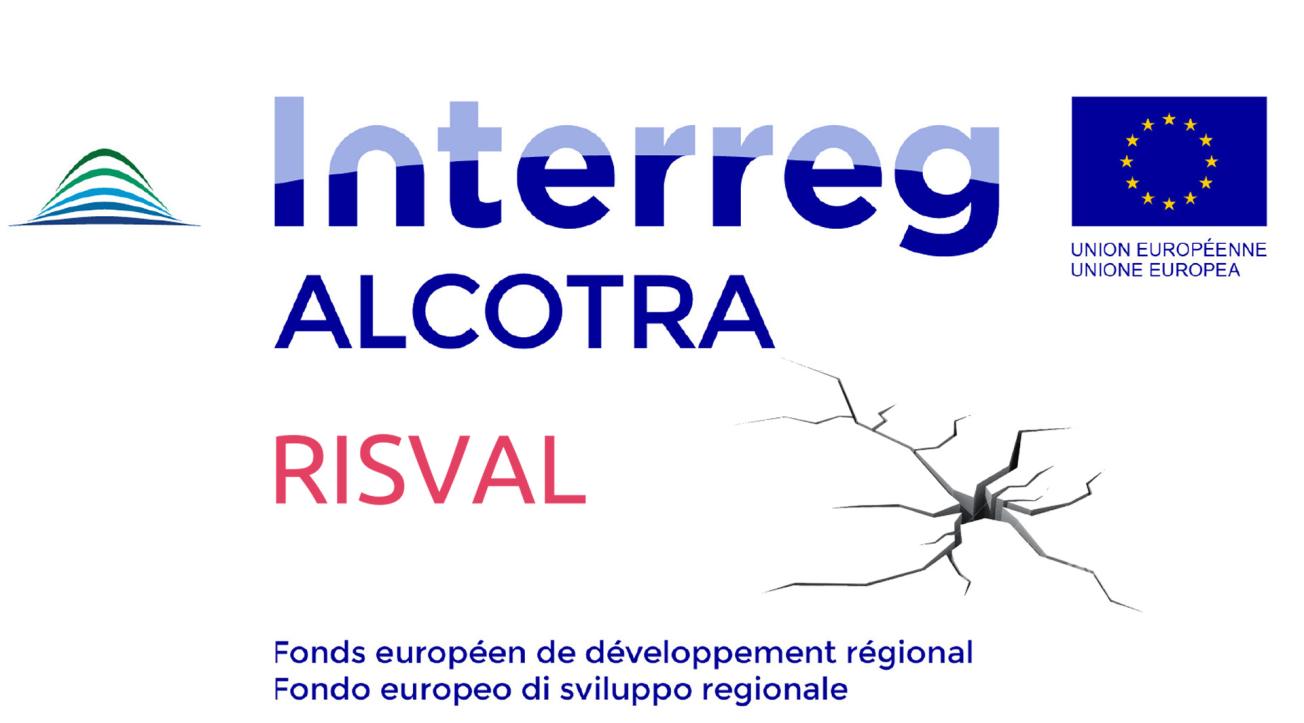
Logo of the RISVAL project.
© Interreg ALCOTRA
Issues and needs
The cross-border area between Italy and France is characterised by a moderate seismic risk, resulting in regular, but generally low-level seismic activity. Despite destructive earthquakes being relatively rare in this region, the occurrence of such a catastrophe cannot be excluded, and this therefore raises the question of whether we are collectively equipped to deal with such a situation. With this in mind, one of the crucial missions of every regional player involved in seismic risk management is to ensure they are prepared for such an event, whose effect on the population, economy and environment could be dramatic on both sides of the border.
This type of preparation is all the more important in areas with moderate seismic activity such as the Alpine arc, since the various services and authorities concerned have limited experience in dealing with destructive earthquakes, making it difficult to set up the appropriate tools and procedures.
Whether the aim is to implement preventive actions in "peace time" (to reduce the vulnerability of certain constructions during periods with little seismic activity) or to deploy emergency measures following an earthquake (to establish under what conditions buildings may be used according to their degree of damage), effective, shared tools and procedures need to be put in place.
Special attention was paid to the following points:
- the continuity/compatibility of the approaches used during periods with little seismic activity, as well as for crisis management, with a view to ensuring efficient coordination between the approaches;
- the need for the authorities to be able to prioritise their actions, in terms of both reinforcing buildings and emergency diagnostic procedures.
Moreover, the experience gained during the destructive earthquakes that recently occurred in Italy, as well as in Le Teil in France:
- highlights that the speed with which the authorities can gather information about the usability of residential structures, critical infrastructures or certain bridges and tunnels has a significant impact of how quickly normal living conditions can resume;
- underlines the importance of drawing on local expertise (with in-depth field knowledge) in the process, in order to support and complement the work conducted by civil engineering experts trained in emergency diagnostic assessments.
Results and use
In this context, the main objective of the RISVAL project was to involve the regional and local authorities in implementing tools that meet their needs for seismic risk management.
In line with the objectives of the ALCOTRA programme (a European-funded Franco-Italian cross-border cooperation programme), the project also aimed to raise awareness about seismic risks not only among the local and regional authorities and their technical teams, but also among the general public (professionals and schools) through targeted workshops and communication. Innovative tools and methodologies were also deployed and tested in pilot areas.
The RISVAL project achieved several valuable results, including:
- two cross-border workshops bringing together scientists, local authorities and French and Italian rescue services, in order to share experiences and ideas;
- the deployment of campaigns to raise public awareness about seismic risks;
- methodologies.
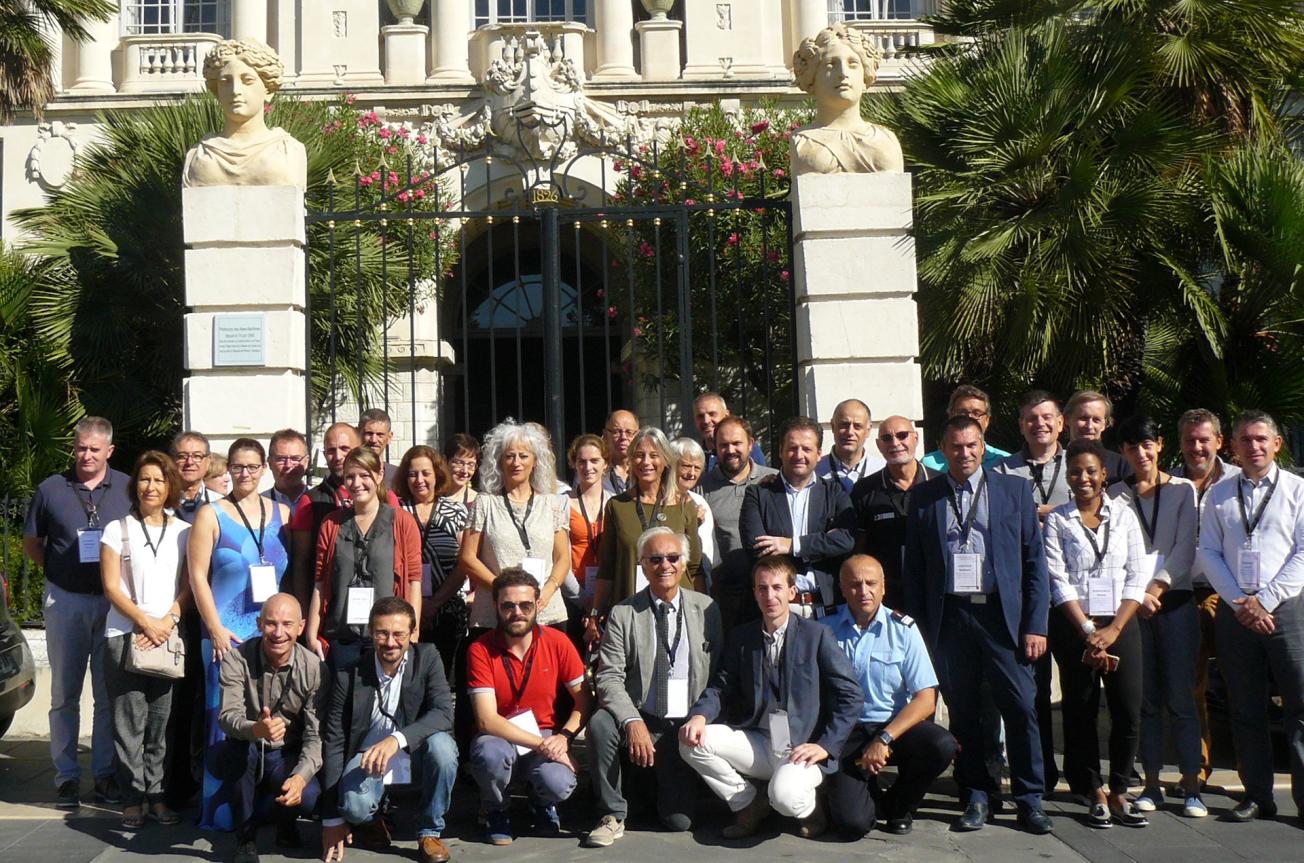
Participants in the RISVAL workshop on "Rapid response tools to support the operational management of seismic crises" (Nice, 2018).
© BRGM
BRGM's role
In contributing to the RISVAL project, BRGM focused its action on setting up crisis-management support tools to help the authorities manage the effects of a major earthquake:
- In collaboration with Entente Valabre, the Prefecture and the Alpes Maritimes departmental authority for inland and marine areas (DDTM), in addition to the RISVAL project partners, BRGM organised a workshop that brought together the main services responsible for managing seismic crises (particularly those occurring in the ALCOTRA cross-border area). On 26 and 27 September 2018, some forty people took part in the workshop at the Prefecture in Nice, in order to share their experiences and the lessons learnt after the dramatic sequence of earthquakes that shook central Italy in 2016. The workshop was specifically devoted to the subject of how to optimise the operational management of earthquakes while taking into account the scale of the crisis. This complemented an initial workshop whose aim was to compare French and Italian approaches to seismic risk management, organised as part of the RISVAL project in December 2017 in Italy.
- In collaboration with GeoAzur and Entente-Valabre, a tool was deployed to enable the rapid assessment of losses following earthquakes in south-eastern France, with automatic "SEISAid" bulletins transmitted to the authorities. In order to make it simple for civil protection services to use these bulletins, and facilitate their integration in operational systems, a template "procedure sheet" was also drawn up. The procedure sheet can be adapted as required and attached to crisis planning documents, such as the specific "Earthquake" measures provided by the French ORSEC emergency plan.
- In collaboration with Entente Valabre, the French Association for Earthquake Engineering (AFPS) and the Directorate General for Civil Security and Crisis Management (DGSCGC) at the French Ministry of the Interior, BRGM contributed to adapting the ERIKUS tool to the French context. This tool was co-developed in Italy by the Piedmont Region, ARPA Piemonte and the Italian National Civil Protection Department, in order to carry out emergency assessments of damage to buildings. The aim was to provide the emergency services and AFPS experts with a common tool which could take into account the specific requirement linked to each party's roles, missions and responsibilities, in order to help them collect and analyse post-seismic data and draw up reports. In this respect, the experience gained following the Le Teil earthquake (Ardèche, November 2019) underlined the importance of developing such tools.
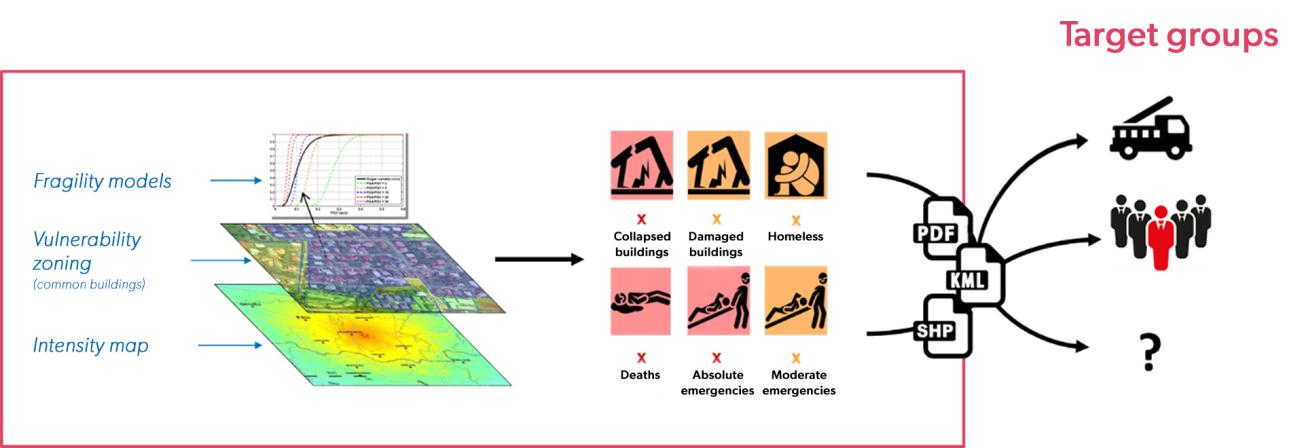
Principle of providing relevant damage indicators to targeted operational users (civil protection and emergency services).
© BRGM
To find out more
-
Visit the website of the European ALCOTRA programme
-
Minutes from the workshop on "Rapid response tools to support the operational management of seismic crises" held in Nice (September 2018)
-
Summary report about deploying the "SEISAid" tool to enable the automatic and rapid assessment of post-seismic damage in the South-East of France

